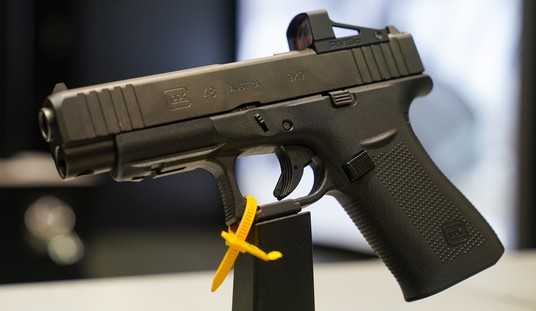The Second Amendment Foundation and the Illinois State Rifle Association have launched a new lawsuit in federal court challenging the failure of the Illinois State Police to process Firearms Owner ID card applications within the 30 days mandated by state law.
In Illinois, a FOID card is required to lawfully possess a firearm, but Second Amendment Foundation founder and executive vice president Alan Gottlieb says the state police are keeping prospective gun owners in a holding pattern for weeks, and in some cases months longer than what the law allows.
“The law requires that the Illinois State Police either approve or deny a FOID card application within 30 days,” said SAF founder and Executive Vice President Alan M. Gottlieb. “But ISP has been dragging its feet, leaving applicants in limbo for months. Sometimes the agency doesn’t act for as long as 60 or even 90 days. You can bet that if a private citizen had to comply with a legal requirement within 30 days, he or she would be in big trouble for not meeting that deadline.
Gottlieb is absolutely right about that. In fact, not only would private citizens be in big trouble for not meeting that deadline, residents in Illinois will still be violating the law if they possess a firearm without a FOID card, even if the state of Illinois can’t meet its obligations under the law. It doesn’t matter if the state police have sat on an application for six weeks or two months; if you’re found in possession of a firearm while your application is in the queue to be processed, you’re still likely to be charged with a crime.
The new lawsuit argues that nearly $30-million dollars has been transferred from the State Police Firearms Services Fund, the State Police Operations Assistance Fund, and the State Police Services Fund over the past five years, and that those funds were supposed to be used to process FOID card applications, as well as background checks for firearm-related services, and concealed carry licensing. The transfer of those funds has resulted in a “a systematic slowdown and sometimes halt of processing of applications and appeals of the FOID Card Act.”
The effect of this has been a systematic slowdown and sometimes halt of the processing of applications under the FOID Card Act. Even before the state lockdown in response to COVID-19, applicants commonly made many attempts to reach someone at the ISP by phone with no success. In the unlikely event that a person would answer, the applicant is usually told only that his or her case is under review.
A few of the named plaintiffs who’ve joined SAF and ISRA in their litigation say they first applied for their FOID cards back in March, but have yet to hear anything back from the state of Illinois , even though the state claims that the average wait time for a FOID card application to be processed is currently 51 days. Even if what the state is claiming is true, that’s still nearly twice as long as the 30 days allowed under Illinois state law.
The Second Amendment groups say that the remedy is simple:
Declare that Defendants’ failure to approve or deny for cause applicants’ FOID card applications within 30 days violates the Second Amendment;
Declare that Defendants have unjustifiably denied Plaintiffs Bradley, Moore, Moore, and Shelton, and the organizational Plaintiffs’ affected members, their Second Amendment right to keep and bear arms for self-defense;
Declare the Defendants’ failure to approve or deny for cause qualified applicants’ FOID card applications within 30 days violates the Due Process Clause of the Fourteenth Amendment;
Declare that Defendants have unjustifiably denied Plaintiffs Bradley, Moore, Moore, and Shelton, and the organizational Plaintiffs’ affected members, their Fourteenth Amendment right to due process;
Enter an injunction ordering Defendants to immediately issue FOID cards to Plaintiffs Bradley, Moore, Moore, and Shelton, and the organizational Plaintiffs’ affected members;
Interestingly, the SAF and ISRA filed a similar lawsuit back in February of this year that dealt with delays with the appeals process for revocations and denials of FOID cards, but the case has been delayed thanks to coronavirus-related court closures. Taken together, both the earlier lawsuit and the new litigation present a case that the state’s FOID card system is simply broken, and the state of Illinois is doing nothing to fix it, in part because there are no repercussions for failing to uphold its end of the process by approving or denying applications in a timely manner. If the system can’t be fixed, it should be scrapped entirely as an abuse and infringement of the Second Amendment rights of state residents.









Join the conversation as a VIP Member